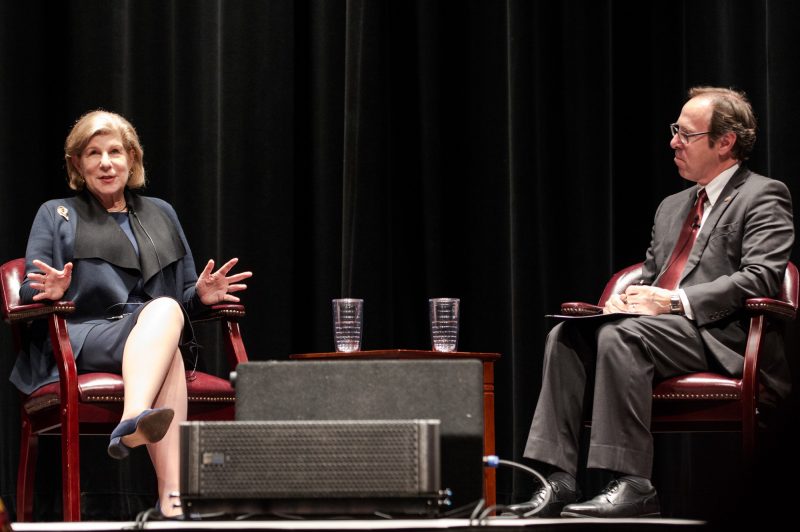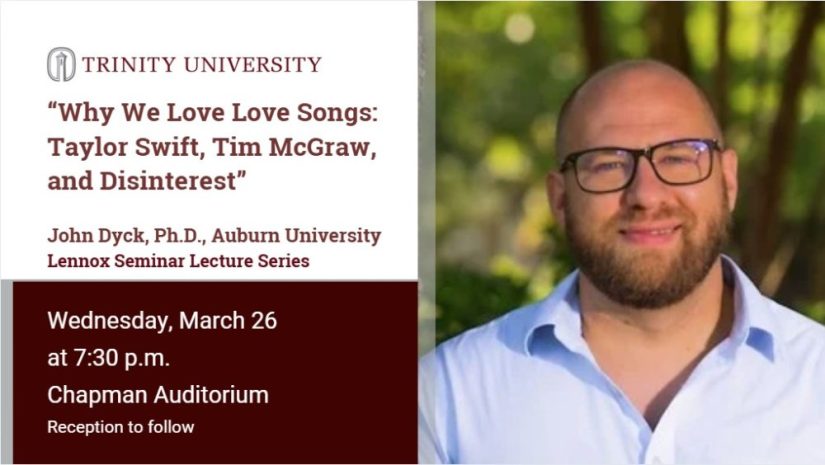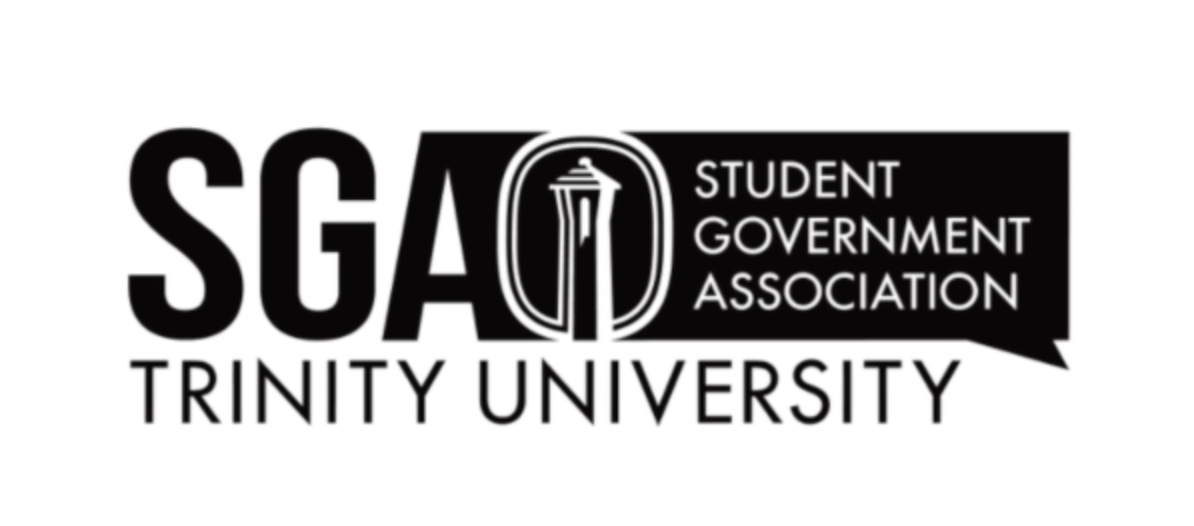As a part of the Distinguished Lecture Series, Nina Totenberg, legal affairs correspondent for National Public Radio (NPR), addressed around 1,000 members of the Trinity community Thursday, Oct. 18, discussing the Supreme Court and the importance of journalism. Danny Anderson, president of the university, moderated the question-and-answer format of the lecture, asking Totenberg questions submitted from the audience.
Totenberg’s coverage of legal affairs and the Supreme Court air regularly on various NPR news programs. Due to confirmation hearings, she is only making two lecture appearances this fall.
Totenberg addressed the changing media landscape during her lecture. At the beginning of her career, there were only a handful of news organizations, all of which were required to present contrasting viewpoints on controversial issues under the Fairness Doctrine. The Fairness Doctrine was eliminated from federal policy in 1987.
“We live in the era of the wild [west] of cable news and the internet when people can say anything about anyone and facts often matter not one bit. You can make them up and it sounds plausible,” Totenberg said. “This is an entirely different environment we’re living where people are free to make their own reality.”
One example Totenberg provided about the role of the media in the past was in regards to the Vietnam War. According to Totenberg, television and print presses seemed to all come to the conclusion that the Vietnam War was unjustified. Eventually, the entire country seemed to join together and turn against the war.
“There was a sense of nationalness that I think we really don’t have today, because of our tribalism,” Totenberg said. “If everybody watches what they only agree with, reads editorial pages they only agree with, goes on websites they only agree with, defriends people they disagree with and can’t have a civil conversation, you have a very tribal country and that’s where we are. I don’t think we’ve been this tribal since the Civil War.”
Totenberg also addressed the role of the Supreme Court. According to Totenberg, the Supreme Court justices should not make their legal views partisan because that diminishes public trust in the court.
“What this country is based on is the notion of ordered liberty. You can’t have that without a court system that is generally trusted,” Totenberg said. “That even though you disagree and that you’re mad about a particular loss, you still think that the country can function.”
Junior Ben Brody, a political science major and president of the mock trial club, introduced Totenberg at the student meeting. The student meeting gave students the opportunity to listen to Totenberg and ask her questions in a small setting before her lecture.
“As someone interested in the courts, I have a lot to learn from her,” Brody said. “My biggest takeaway actually came from the student session. Namely, that the Supreme Court’s legitimacy is in such a precarious position right now that the justices themselves are afraid to publicly disagree too strongly with one another. I was well aware of the Court’s legitimacy crisis, but I had no idea that it was directly impacting the behavior of the Justices so dramatically.”
In the press conference held prior to her lecture, Totenberg emphasized the importance of delivering news as straightforward as possible.
“It’s dangerous for us as a country, it’s dangerous for us as a democracy and it’s dangerous for all of our political and judicial institutions to be so divided,” Totenberg said. “Because a democracy is based on some notion of trust. [Trust in the media] seems to be eroding and I think that’s very dangerous. I hope [students at the lecture] take away the notion that journalism is a serious business. What’s really important is that people get straight information so that they can make their own judgments.”
Sophomore Cecelia Turkewitz, SGA chief-of-staff and student ambassador, attended Totenberg’s lecture to hear her opinions on the recent Supreme Court hearing and journalism.
“I think everything about journalism is so important in today’s political climate. It’s the only check to the government when there’s one party in power,” Turkewitz said. “Journalism allows people to have a voice — even if there seems to be too many voices and some of them are toxic. It is so important in terms of representation, letting people who have been marginalized for so long be heard and creating motivation to engage in politics. It speaks truth to power.”






